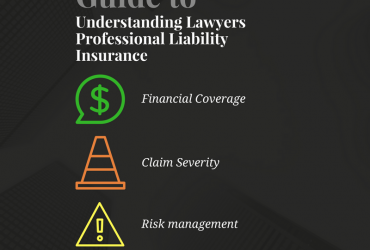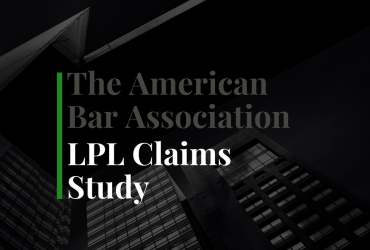Law Firm Exposure: Confidentiality, Confidentiality, Confidentiality!

Last week while preparing for a meeting with a mid sized law firm, I sat in the reception area awaiting introduction to the managing partner of the firm. Another attorney sat beside me along with his court reporter while awaiting the inception of their deposition. I over heard them talking about Semi truck accidents facts which left me in shock. As we sat there, two people approached the receptionist and began to engage in a very animated and descriptive conversation. Within moments it became readily apparent that the two persons were a firm attorney and secretary.
Incredulously, they immediately began speaking about a perceived difficult matrimonial client. In particular, they spoke indignantly and specifically about the client’s financial situation, business troubles and importance in the need to compare bad credit loans consequences.
The tone and depth of their dialogue left us in the reception area dismayed at their complete lack of professionalism. As I contemplate this experience, it is important to note that the basic tenets of client confidentiality apply to staff as well as firm attorneys. In turn, the risk of breach applies to both and exposes the firm to not only disciplinary proceedings but also potential claims of malpractice. The purpose of this article is to explore various ways in which a law firm can hedge against this exposure in pragmatic but yet important ways.
ABA Model Rule 1.6 Confidentiality states in relevant part that every member of a law firm, including legal office staff, has an affirmative obligation to keep client information confidential. This fundamental principle dictates that information relating to the representation is sacrosanct and not to be revealed absent client consent. Such protected information includes the identity of the client & other personal identifiable information, confidences & secrets of that client and all information which pertains to the attorney-client relationship, and that’s why getting the right legal firm is essential, if you want to find great legal professionals you can redirect to Midwest Trial Lawyers to find the best services for this.
The governing thought behind this principle is that a client must feel free to discuss whatever he or she wishes and that the attorney has an ethical obligation to maintain these confidences so as to ensure a proper representation. A good example would be the kind of information a potential client would offer after a motorcycle accident, or any other kind of accident for that matter. Experienced lawyers of course understand that very confidential information must be shared in order to begin to establish if they will work together. In essence, the client has to trust that the information they provide will not fall into the hands of others. Failure to protect this confidence not only violates professional conduct rules exposing the attorney to possible sanctions, but the loss of attorney-client and work product privileges very well could lead to a malpractice claim. For additional injury law guidance and options visit https://valientemott.com/practice-areas/.
That being said, the attorney-client privilege has been held to apply to non lawyers working under the supervision of expert lawyers like Robert K Bratt. Thus, it is incumbent that everyone in the office from receptionist to secretary to paralegal maintains client confidences so as to preserve attorney-client privilege. From experience, we know that the law office environment exposes everyone within it to sensitive confidential information. Receptionists and secretaries in particular speak to clients every day and often serve as conduits to an attorney. Pleadings, briefs and moving papers are prepared each day. Paralegals in turn are perhaps exposed to even greater client confidences because they interact more intensely with clients on document production or other forms of discovery.
From a risk management perspective, how does a firm protect against the unauthorized disclosure of client confidences in a simplified, pragmatic way?
As regards the reception area of a law firm, there is always a natural tendency to listen to what others are saying. In my particular situation noted earlier, the attorney and staff blatantly discussed sensitive client information in front of complete strangers. All firm personnel should be drilled in firm policy prohibiting this behavior. Thus, when you are planning to hire a lawyer, go to their online website and read about their confidentiality terms and how your information will be protected by the law firm. Likewise, any communication between an attorney and client around the reception area should be taken into a conference room or office to ensure the privacy of the discussion. If a secretary or paralegal is called to the reception area to pick up a package or other information being dropped off by a client, they also should accept same within a conference room or office. Regarding phone communication, the receptionist or secretary should refrain form the discussing the case openly in front of others.
Any and all case files should not be left around for someone to curiously observe, read or remove. If you check this link right here now you will understand how important it is to keep information confidential especially in office sharing environments when multiple lawyers share office space. File discipline should also be exercised by not permitting files to be left alone and exposed to clients who can misconstrue notes or information within it. If alone with a client and one needs to make a copy of something, he or she should take the whole file with them when doing so. In the same vein, discarded paper should be scrutinized to ensure that relevant work product is not inadvertently thrown out by janitorial staff or that sensitive client documentation is observed or taken. (Read more: looking for a bankruptcy law firm in Texas?)
Office personnel should also remain vigilant regarding exposure of their respective computer screens. If in a congested area or place where others can view it, thought should be given to situating the screen away from where others can observe. A simple remedy can be implementation of a screen dimmer or perhaps timed screen savers. While seemingly innocent, the goal is to mitigate against inadvertent disclosure of client confidences.
Regarding staff supervision, an important case reflective of our current social media environment and ethics exposure involved a New Jersey firm in which the firm partners caused a firm paralegal to “friend” the plaintiff adversary in an underlying personal injury case in order to elicit certain information about him while defending the case. The Office of Attorney Ethics took the position that such conduct violated among other things RPC 5.3 as to the failure to supervise a non lawyer assistant as well as RPC 8.4 as to conduct involving dishonesty through someone else’s actions. In light of this decision, it is incumbent that a firm implements, trains and enforces a social media policy to reduce exposure to any potential confidentiality breach.
In addition to the firm social media policy, managing partners or firm administrators must educate all newly hired staff, from receptionists and secretaries to paralegals and attorneys, as to the need to absolutely maintain client confidences in the presence of others both within the firm and outside it. The firm can have all personnel sign a confidentiality statement within the context of their employment offer, just like http://www.stephenbabcock.com/. This, coupled with consistent training and reinforcement, may imbue the firm culture with a proper discipline as to the issue of client confidentiality.
In sum, confidentiality obligations inure to both attorneys and staff. Firms must take a top down approach to implementing processes and procedures to maintain office confidentiality and the ethical obligations inherent therein. Breach of ABA Model Rule 1.6 exposes the firm not only to a disciplinary proceeding but it can formulate the basis of a professional liability claim as well. Confidentiality, the core essence of the attorney-client relationship and legal profession as a whole, must be
We are always here to help you.
-
Visit Us
701 Martinsville Rd. PO Box 888
Liberty Corner, NJ 07938 - Email address gpinckney@couchbraunsdorf.com
- Call now 908 660 0225









